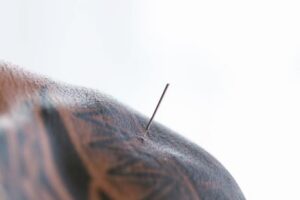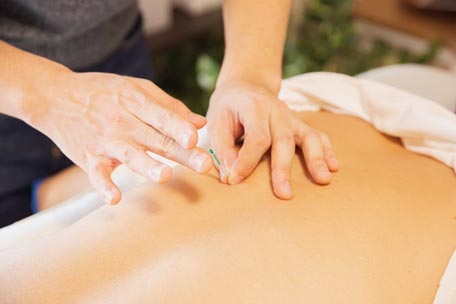If you are new to alternative healing practices, acupuncture may seem a bit frightening at first. How can becoming a human pin cushion make you feel better? Won’t it hurt? Besides this, compared to medical interventions, acupuncture is not only efficient, but less invasive as well. Western medicine treatments provide many benefits for patients, and in certain conditions, acupuncture can be very beneficial either and an alternative or as an adjunct to standard care.
Not only is acupuncture not as painful as you think, but it also offers a range of health benefits. The fact that it has been practiced for more than 5000 years is a testament to that fact. From treating morning sickness to chronic pain, acupuncture can quickly become your go-to treatment for ailments that have made you miserable for years.
Mechanisms of Acupuncture
The mechanism of the ancient Chinese practice that is acupuncture has been studied for over 60 years. Acupuncture research has shown to reduce inflammation, increase circulation, increase immunity, reduce swelling, and release natural pain killers called endorphins. Research has also shown sensory nerve pathways involving critical nerve fibers as well as descending ones are intricately mapped out. Several biological and signaling pathways have been pinpointed as how acupuncture is used to achieve specific effects but purinergic signaling stands out.
The phenomenon uses ATP and adenosine for signaling and regulation of several organ systems and tissues. Today, it is well known that every nerve transmission requires ATP and that our body utilizes purine levels as a signal to maintain overall health and wellness.
What Are Acupuncture Points?
Acupuncturists don’t stick needles randomly. They use a beautiful process that takes acupuncture points or acupoints into account. These are anatomically defined areas of the skin that are numbered in sequence. Each point corresponds to an organ that pinpoint the meridian on which it is located along with a number that indicates its exact position.

What is Acupuncture?
Acupuncture is a traditional Chinese medical procedure. There are 361 main acupuncture points connected to one another through pathways or meridians. Each of those points can provide relief from pain if they are stimulated a certain way.
According to traditional Chinese medicine (TCM), our life energy or ‘qi’ flows around 14 meridian lines along our body. Most of the points where an acupuncturist inserts needles are based around that intricate map, and each meridian connects with specific organs or groups of organs.
What Are Acupuncture Needles Used For?
They may look painful, but in the hands of a professional, acupuncture needles can work their magic and heal ailments and chronic conditions without side effects. It’s important to note that these needles are not your garden variety sewing needles. An acupuncture needle is quite thin and made from stainless steel. The length and material are essential as both make the needle flexible enough to be manipulated under the skin.
Acupuncturists use an array of needles to stimulate specific acupoints. For example, sensitive areas such as the face are treated with short needles, and areas made of dense tissue are treated with longer needles. Each needle is only used once and is discarded immediately after usage.
How the Needles Are Inserted
The needles are inserted strategically into each acupoint. You will feel a slight prick or tingling when it penetrates your skin. If you can withstand a mosquito bite, you can take acupuncture needles. A skilled acupuncturist will ensure that you feel next to nothing. Once the needles are in, the acupuncturist will guide the needle gently in.
What Happens After a Needle Is Inserted
You will rest for about 20 minutes once the needles are in place. There should not be any sensation of feeling while you rest, and many people fall asleep during this time.
What to Expect During Your First Acupuncture Session?
An appointment with an acupuncturist is quite similar to a doctor’s appointment. The acupuncturist will ask you to detail your medical history and the symptoms you are experiencing. After that, they may ask you to stick your tongue out for an examination. The color, texture, and coating on the tongue help them figure out your general health and the treatment strategy they should employ.
Note: DO NOT scrub your tongue before going in for an appointment. It may look healthier than it is, and your acupuncturist may miss essential clues about your wellbeing.
This step is called an ‘intake process, and it starts the moment you make an appointment and when you arrive for it. Your acupuncturist will evaluate you the moment you step in. He/she will utilize various acupuncture related diagnostic methods to assess your health.
This is understandable because all of these factors present a bird’s eye view of an underlying problem you may not be aware of. Your acupuncturist will keep on collecting information like this throughout the appointment.
After determining the imbalances in your body, your acupuncturist will map out appropriate points to insert needles in. These are inserted along meridians that can eliminate health issues and discomfort and address any underlying condition. The aim is to bring the body back into homeostasis or wellness under its own power.
You will be lying comfortably on a bed as the needles are inserted. The experience will be akin to one you would get in a typical spa. The lights will be dimmed, soft music will calm you, and your acupuncturist will return to remove all the needles when the time is up.
Top Surprising Acupuncture Benefits
Here are some of the best acupuncture health benefits that your doctor may not tell you:
Improves mood
Acupuncture can stimulate the central nervous system to release endorphins and other chemicals that can make that stress drain away. Besides bringing a skip to your step, the stress relief will support your body in fighting off tendencies that can cause prolonged anxiety.
Gives relief from headaches
Depending on how and where the needles are placed, acupuncture can have prolonged pain-reducing effects. The endorphins that the needles stimulate the body to release alleviate headaches and migraines that can otherwise harm your lifestyle.
Enhances Sleep Quality
If you toss and turn at night for hours and are usually tired in the morning, you need acupuncture. The treatment can increase your body’s ability to produce melatonin, a hormone that regulates our sleep and wake cycles if present in sufficient amounts. With time, low levels can lead to a slew of health problems. Acupuncture can restore your natural ability to fall asleep by increasing and regulating those levels.
Final Word
Acupuncture may be an alternative treatment method, but its efficacy in treating health conditions and sustainable benefits are unquestionable. Please consult with a professional to ensure you get appropriate treatment.
The Main Clinic at American College of Acupuncture & Oriental Medicine (ACAOM) and ACAOM at Houston Methodist Hospital Wellness Services offer one of the best treatments in traditional Chinese medicine to patients. Book a consultation today by dialing 713-780-9786 (ACAOM) or 713-441-5980 (Houston Methodist Wellness Services). Besides acupuncture, the main campus also specialize in herbal medicine, cupping, tui-na and other treatments.
 Our Degree Programs
Our Degree Programs